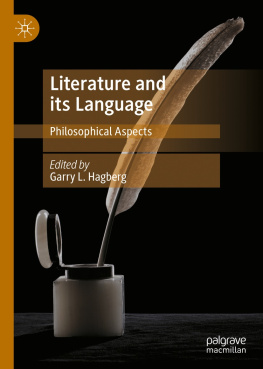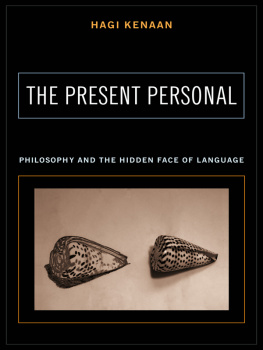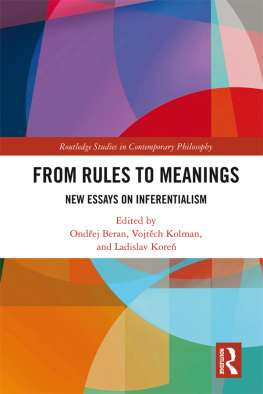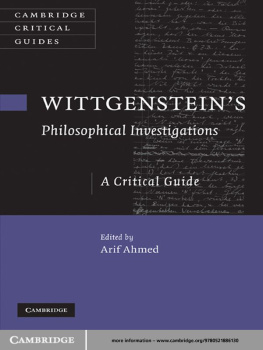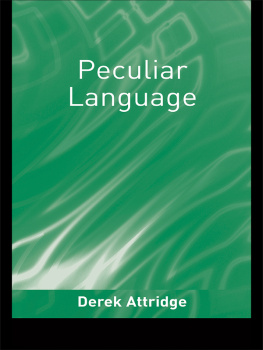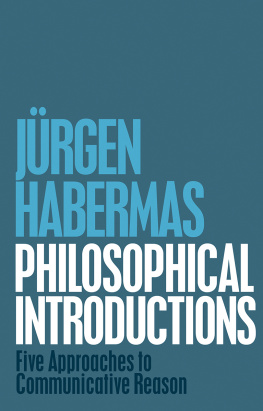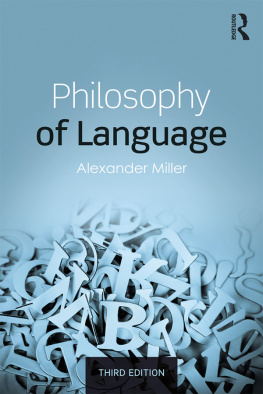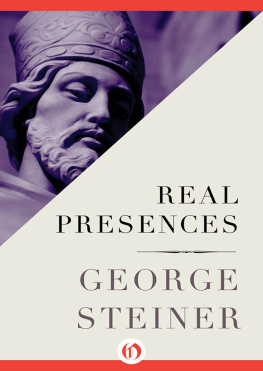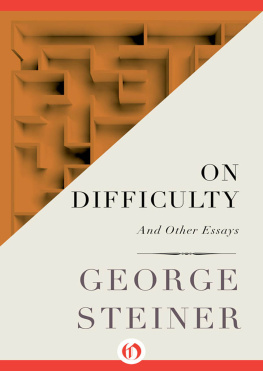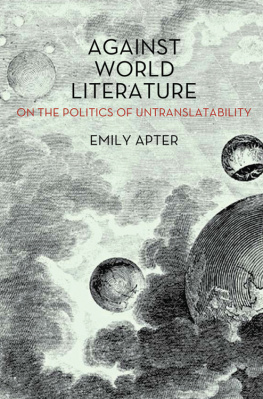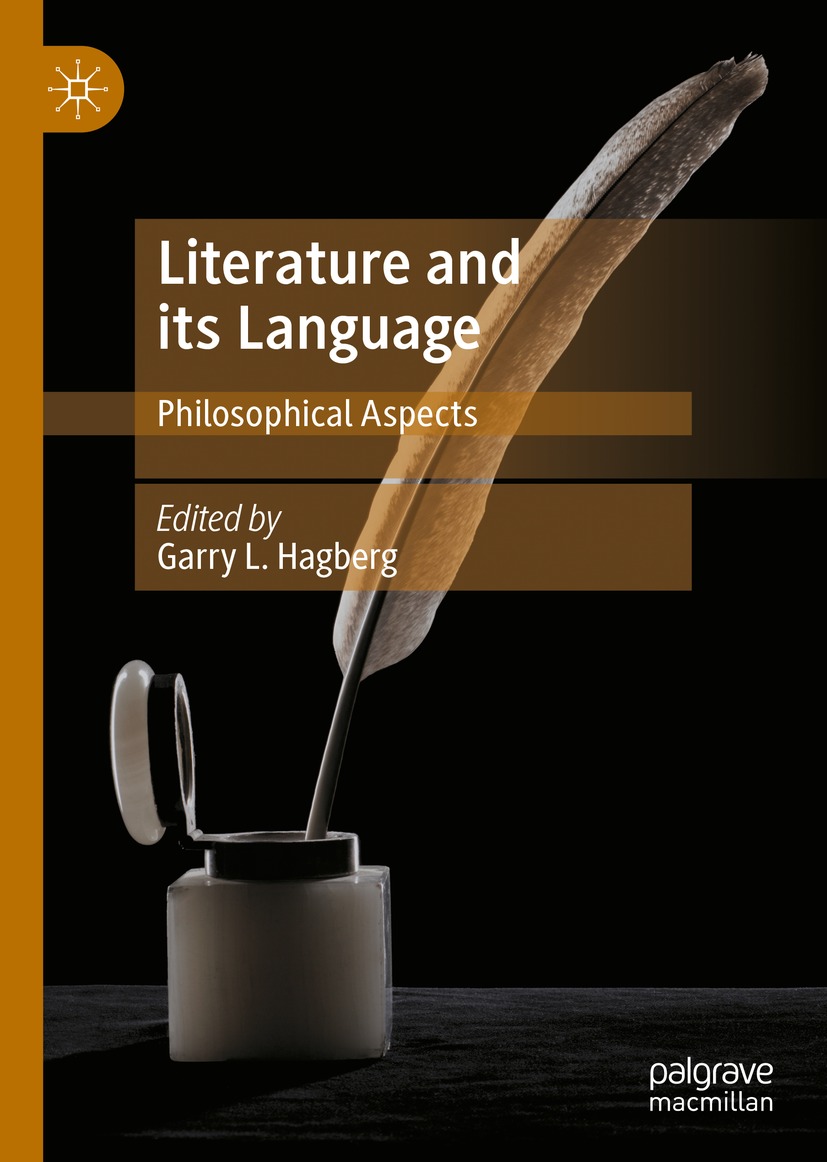Editor
Garry L. Hagberg
Department of Philosophy, Bard College, Annandale On Hudson, NY, USA
ISBN 978-3-031-12329-0 e-ISBN 978-3-031-12330-6
https://doi.org/10.1007/978-3-031-12330-6
The Editor(s) (if applicable) and The Author(s), under exclusive license to Springer Nature Switzerland AG 2022
This work is subject to copyright. All rights are solely and exclusively licensed by the Publisher, whether the whole or part of the material is concerned, specifically the rights of translation, reprinting, reuse of illustrations, recitation, broadcasting, reproduction on microfilms or in any other physical way, and transmission or information storage and retrieval, electronic adaptation, computer software, or by similar or dissimilar methodology now known or hereafter developed.
The use of general descriptive names, registered names, trademarks, service marks, etc. in this publication does not imply, even in the absence of a specific statement, that such names are exempt from the relevant protective laws and regulations and therefore free for general use.
The publisher, the authors, and the editors are safe to assume that the advice and information in this book are believed to be true and accurate at the date of publication. Neither the publisher nor the authors or the editors give a warranty, expressed or implied, with respect to the material contained herein or for any errors or omissions that may have been made. The publisher remains neutral with regard to jurisdictional claims in published maps and institutional affiliations.
Cover credit: Image Source/Getty Images
This Palgrave Macmillan imprint is published by the registered company Springer Nature Switzerland AG
The registered company address is: Gewerbestrasse 11, 6330 Cham, Switzerland
Introduction: Words at Work
That literature is composed of words is a simple truism. And that the philosophy of language is the study of words and sentences in words and senten ces, if perhaps not a simple truism, is equally undeniable. So it would seem natural that the twoliterature and philosophical approaches to languagewould be brought together. And to an extent they have been, and productively so. But investigations of literature carried out in the light of philosophies of language, and specifically investigations of literary meaning conducted in tandem with philosophys inquiries into meaning , are still thinner on the ground than they might be given the promise that the convergence of the two seems to hold out. So part of this collection is devoted to precisely that project. But then the other part? Thinner still on the ground are studies in the philosophy of language that seriously and fully incorporate literature as a source of insight into linguistic meaning and as a source of detail, of nuance, of verbal subtlety, and of the fine particularity that show us how and where and when our words work. And so the other part of this collection is devoted to that kind of project. Yet this way of describing this books twin imperatives would be misleading if it were taken to suggest that there is a clear categorical separation between the two, with half the chapters performing the one task and the other half the other. Indeed, all of the chapters presented here do both; some may start from philosophy while others start from literature , but all of the chapters cast light on both sides of the distinction by interweaving philosophical issues and literary analysis as their themes unfold.
Opening Part I, Wittgenstein , Austin : Meaning and Literary Performatives, Andrew Gaedtke examines unrecognized points of conceptual and stylistic convergence between the work of Flann OBrien and Ludwig Wittgenstein . Although operating in quite different generic and discursive modes, both writers, Gaedtke observes, reject broad metaphysical systems, idealized models of language, skepticism , and the impulse to theorize or overgeneralize. As correctives to these tendencies, OBrien and Wittgenstein adopt similar techniques to train their readers attention on the zones of overlap in linguistic usage where confusion tends to arise. And the comparison with OBrien casts new light on Wittgensteins later work as it illuminates satirical and ironizing styles that have often been overlooked.
In Chap. , Daniel Just examines the distinctive form of realism in Raymond Carvers short stories as a type of literary performative that brings together two ostensibly incompatible varieties or registers of language: (a) the ordinary language of everyday communication often exhibiting a low level of literariness, and (b) the special use of language that emerges once we stop utilizing language routinely as a tool in our daily interaction and become in a new way conscious of it and deploy it in more deliberate and imaginative ways. Carvers stories create the impression of plainness and artlessness that draws our attention to the singularity and ordinariness of what is at hand at each moment. Their broader meaning as a type of utterance , as Just reveals as an implication of Carvers style , is that nothing in our language matters more than anything elsethat is, nothing in our language is unworthy of attention. As Just sees it, Carver constructs a world and a literary language-game in which everything is the way it is and in which one does not discriminate or even prefer: it represents a world in which everything is of equal value and for Just is thus a language-game that affirms all of this world.
Chapter begins with Luke Muellers observation that there are few commonplaces throughout studies of Oscar Wilde that are as widely accepted as the power of performativesbut this version of performatives is usually extruded through a narrow set of poststructuralist concerns for language as a form of constraint, where uncertainty affords a distinctive form of conceptual liberation. This narrow picture , Mueller argues, excludes much of the value of the approach to language first envisioned by J. L. Austin . Mueller argues for a more faithfully or truly Austinian approach to Wilde , and he shows how the poststructuralist picture of linguistic uncertainty ignores the role of contexts and conventions of use that allow structurally unstable language to produce sensible and pragmatically fixed meanings . For Wilde (and for Austin ), certainty and truth remain viable and useful in many contexts, and the constraints of language must be understood through the constraints particular individuals and societies impose rather than through overarching theory . Lastly in Part I, Julian Lamb asks, Is the storm already happening when Lear says these famous words: Blow, wind, and crack your cheeks! Rage, blow? Even though these lines call for a storm to happen, Lamb observes that the vast majority of productions understandably cast doubt on Lears power to do so, by having the storm already raging before he begins speaking: he merely calls for what already exists. What, then, is the status and function of speech acts which very palpably do nothing, and which do not perform what grammatically and syntactically they claim? Thus in this chapter, Lamb attempts to determine the specific nature of the infelicity of Lears performatives in the storm , and relate this linguistic issue more broadly to the entire play.

